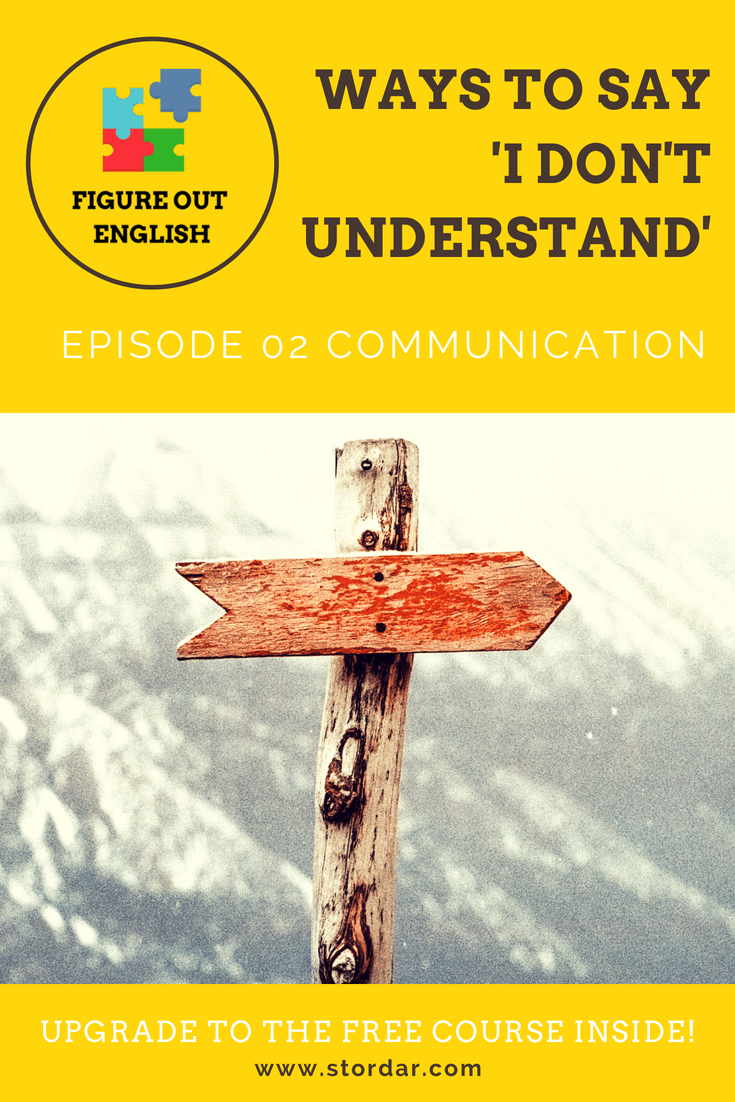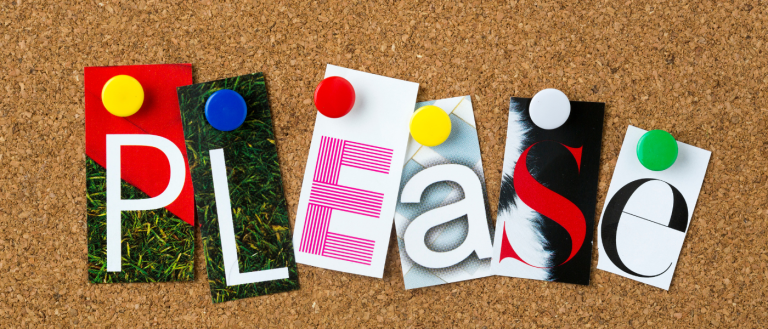Today we deal with a confusing situation: how to say ‘I don’t understand’ in English.
When you have problems with understanding – it is usual, and you shouldn’t be afraid of that. It happens all the time with native speakers too. But for English learners, it is quite emotional because it could show you are not fluent enough, and we don’t want to look stupid.
<<< Subscribe on iTunes >>> <<< Subscribe on Spreaker >>>
But the thing is: it is in your head. There are real situations when it’s just…you didn’t hear or maybe it’s too hard to hear or maybe you communicate in some complicated context.
Don’t be afraid to ask people to repeat what they said or what they meant. There is nothing shameful about this situation. There are many factors which can interfere with understanding: noises, stress, unclear idea, different background, thinking about something else, a bad day… really many reasons! It’s not always about your bad English. Don’t start with blaming yourself immediately! There is no problem with asking to repeat.
So, which phrases to use when you don’t understand or didn’t hear something?
Many people say ‘Excuse me’ or ‘Sorry’ in this situation. We have a special word in English for this. It’s ‘Pardon’.
Please, be careful about pronunciation. It is spelt P-A-R-D-O-N. People say it in all the possiиду manners, but the correct pronunciation in English is: /ˈpɑː(r)d(ə)n/.
And if you use to ask to repeat what the person just said, you will pronounce it with a rising intonation.
In the formal style, we will say: ‘I beg your pardon?’ Please remember it’s quite formal.
Also, you can say some set phrases:
- Sorry, I didn’t (quite) catch that.
- Sorry, I didn’t hear what you said.
- Sorry, I didn’t get that.
- Could you please repeat that? (more formal)
- Can you please repeat? (informal)
And it is also very important when people repeat what they said, when they are kind to you, so to say, please confirm that you understood.
- Now I see, thank you.
- Got it.
- Now I understand, thank you very much.
How to ask for clarification
Sometimes, you need to ask people for clarification (when you don’t understand what the person wanted to say, when you didn’t understand the idea).
Again, it doesn’t always happen because your English is bad. People don’t always express their ideas clearly. It’s not always your fault!
Be sure you are not too hard on yourself, and just stay calm because your ultimate goal is to get a practical result from this situation.
So, if you need some clarification for what you just heard, you can use phrases like
- Sorry, what did you mean by that?*
- Could you please be more specific?
- Could I ask for clarification on…? *this is very polite)
- Can you explain what you mean?
*It’s better to use Past, not Present. ‘What do you mean?’ is quite a direct question so it will be more informal. If you want to sound polite, you will use Past Simple instead of Present Simple.
How to clarify
If you see that people don’t understand you about something you said or they are confused, you also can give the clarification yourself. Say your idea again starting with:
- Let me explain…
- To put it differently,
- What I mean is…
- What I was trying to say is…
These are very popular phrases when you make some kind of short speeches when you explain some concept. We call them signal phrases because people have not very long attention span and sometimes you want to drive attention to what you are saying. If you want to give a signal to the person that you are going to say something important, you also can start with this ‘What I am trying to say is’. Make a little pause, make sure that people are looking at you now and then explain your idea.
‘To put it differently’, let’s come back to this phrase. To put means ‘to express’, ‘to say’. ‘To put it differently’ will mean ‘In other words’ (which is also a good phrase to use).
I hope you got the idea that it’s not always your English which is bad but we communicate in different kind of situations, backgrounds and don’t start with blaming yourself first.
Free English Learning Guide
If you want to understand real-life conversations in English, you need to know phrasal verbs. They are an important part of everyday English speaking.
Download our Guide ’55 Common Phrasal Verbs’ to expand your vocabulary for free
This Guide is for those who:
- have already studied English and are at A2-B2 level;
- want to expand their English vocabulary;
- want to understand native speakers, films and TV shows.





